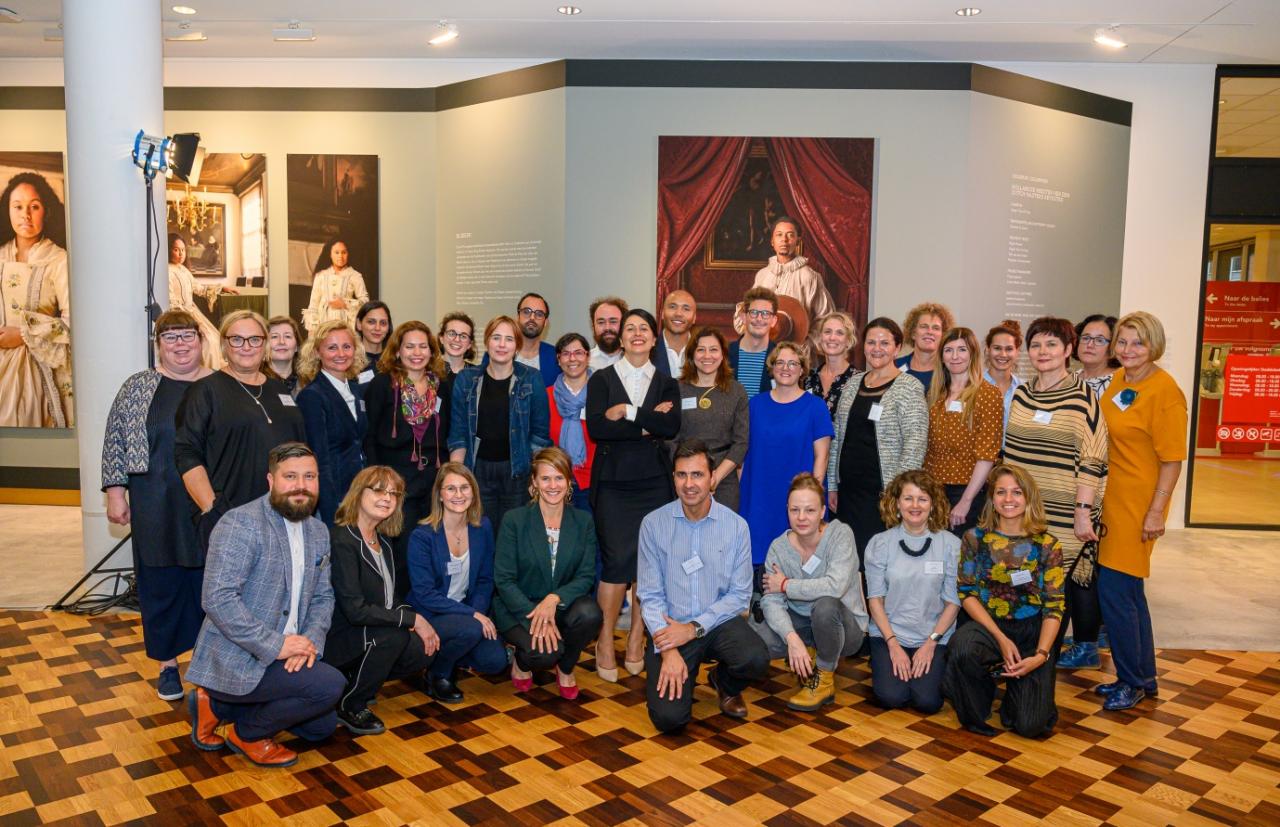
Happy, healthy, prosperous cities are rich in culture but culture does not enrich and empower everyone equally.
Groups of people or geographical areas can face barriers to accessing culture; existing cultural offers may not include the stories or cultural forms which reach out to current populations. To address these challenges, eight European capital cities have come together through URBACT to form the ACCESS network. Each participating city has committed to working together to include more people in and through culture and to adapting their approach to policymaking to make this happen.
Amsterdam [NL], Dublin [IE], Lisbon [PT], London [UK], Sofia [BG], Talinn [EE], Riga [LV] and Vilnius [LT] each have rich and vibrant cultural offers but have each identified challenges specific to their cities in making their cultural offers more inclusive. In Riga, for example, 70% of all cultural institutions are concentrated in just two of 58 of the city’s neighbourhoods. Amsterdam, now a ‘majority minority’ city (ie most of the population is from a minority ethnic group), culture has not fully adapted to the demographic change. Tallinn has identified a knowledge gap such that they have no qualitative evidence that the city’s cultural offer is actually meeting people’s needs and contributing to wellbeing. Each city found resonance in the others’ challenges. Collectively, the network has therefore identified three areas of common need: to widen participation, to spread cultural infrastructure more equitably across the city and to improve data collection and use around cultural participation.
They have also identified a new approach to policymaking as a central requirement. As Araf Ahmadali, Senior Policy Advisor for Arts and Culture, City of Amsterdam said, “We have to start with a recognition that as civil servants we don’t know all the answers; we’re not at the head of the table, we’re part of the table.” Work to deliver cultural inclusion needed to be genuinely inclusive: not culture for everyone, but culture with everyone.
“Everything we do is based on conversation” Tracy Geraghty, Dublin City Culture Company
Discussions between the partner cities and invited local stakeholders at the inaugural meeting of the ACCESS network in Amsterdam in September identified five key aspects of an inclusive approach to cultural policymaking:
- an ongoing conversation: discussion about culture in the city should be continuous, not occasional. As Tracy Geraghty explained, this is already the cornerstone of the Dublin City Culture Company’s ‘tea and chat’ model of programme development: “Everything we do is based on conversation; we don’t do anything without having spoken to the communities we serve first.”
- be open and accessible: make it easy for people and organisations to get in touch
- listen and learn: many people and organisations have experience of how to share culture more widely and are keen to share their expertise
- reconsider their city ‘centre’: if a different area was the city centre, what cultural offer would you expect to see there? what institutions and support would it need?
- challenge existing definitions: what is talent? what is quality? what is culture? Policymakers must be open to new and different definitions.
Each city has committed to developing this approach for their own cultural policymaking.
The ACCESS network will continue to collaborate and share ideas and practice over the next two years as each city develops its own Action Plan for ‘culture with everyone.’ More policy and practice ideas from the network will be shared in future blogs.
